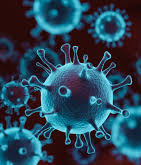To quote CJ, the boss of Sunshine Desserts in The Fall and Rise of Reginald Perrin:
 |
| Cognitive Distortion. Image: © Mike Bodnar
|
'I didn't get where I am today by using clichés,Reggie. I avoid clichés like the plague'.
I've had depression before and been on medication for it, quite a long time ago now, but I remember clearly how it felt. The symptoms will vary from person to person, but for me it was a feeling of hopelessness and a sense of 'why bother? And, 'why me?' A real sense of, well, depression and - importantly - helplessness. That was the worst thing, helplessness.
So it worried me to recognise these symptoms again a few weeks ago, and concerned me also that in general I had little or nothing to be depressed about. Lockdown had been relatively easy and not too much of a chore, I don't mind wearing a face mask (most people would be pleased that I am!), and although I missed travelling and we had to rethink journeys and having visitors, it didn't worry me too much. So what was it?
In short, the news. I realised I had got into a daily rut (which is the word 'routine' with some letters missing) where the first thing I would do on waking each morning was go online to read the Guardian and the BBC News, followed by some social media. Later in the day I'd watch the evening news, just to see what had changed or happened since the morning.
And it dawned on me that what was getting me down was that the news in general, week after week - in fact for months if not years - has not been good. The Brexit debacle, Trump, the Amazon rainforest disappearing, climate change,
 |
| A dangerous virus |
Yes that's a personal selection and yes there has been some good news (cue Captain Sir Tom), but I propose it has been vastly outweighed by the bad. And it vastly imbalanced my mental wellbeing. Turns out I am not alone, and that overexposure to news and the adverse impacts it can have on a person's mental well-being is a thing.
The website verywellmind.com has an article about the negative impact of bad news and Covid-19 in particular. It quotes psychologist, Logan Jones, PsyD, who says, 'Unfortunately, a lot of the news we consume today isn’t so much reporting as it is a way of keeping people addicted to the news cycle'.
He adds that sensational headlines attract more attention, so media outlets frequently focus on disaster reporting at the expense of positive news.
 |
| Boris Johnson |
The same article quotes Annie Miller, who has a string of letters after her name stolen from the Polish alphabet: MSW, LCSW-C, LICSW. She says, 'It can be damaging to constantly be reading the news because constant exposure to negative information can impact our brain'. She adds that our brain then activates the 'fight or flight' response, and the systems in our body react accordingly.
And it turns out there's a chemical equation to all this; watching or being exposed to a lot of negative news can release stress hormones such as cortisol and adrenaline. The likelihood of this happening increases during a crisis (e.g. every time Trump opens his mouth, Covid-19 in particular, Boris Johnson failing to get to grips with the virus, and the complete omnishambles of mixed messaging from government in general) to the extent that we can develop physical symptoms. Some of the most common are: fatigue, anxiety, trouble sleeping, and - guess what? - depression.
Time magazine, in a report in May this year, quoted Graham Davey, Professor Emeritus of
 |
| Prof. Davey. Image: Psychology Today |
Psychology at Sussex University and editor-in-chief of the Journal of Experimental Psychopathology as saying, 'The way that news is presented and the way that we access news has changed significantly over the last 15 to 20 years', adding that: “These changes have often been detrimental to general mental health'.
The changes he refers to are that news reports are 'increasingly visual and shocking', but also of course it's to do with how we get our news; mainstream media, social media, even celebrity and influencer gossip - all bombard us on an all-too-frequent basis. Never has there been such omnipresent and widespread 'news', opinion or comment; it's available 24/7.
So it's not just how I was consuming the news, it was the news media itself and the way it was being presented. Turns out I'm a victim. Okay, poor Mike you say, why can't you just look the other way and shrug off the negativity?
 |
| Loretta Breuning. Image: psychologytoday.com |
Whoa! So now we're in a situation where our brains are predisposed to 'go negative' while at the same time we are exposed to an increasing amount of negative news coverage presented in sensational and don't-look-away styles, and our bodies react chemically resulting in actual imbalance of our physical and mental states. Vicious circle. Fact! Nobody knows more about vicious circles than me.
But all is not lost; there is an answer, there is hope. The solution, the experts say - as with alcohol, fast foods, sugar and other things that can be bad for you in
extreme doses - is to practise moderation in your news consumption. Supporting this, the World Health Organization (WHO) recommends for example searching news about Covid-19 largely so that 'you can take practical steps to prepare your plans and protect yourself and your loved ones'. Once you have that information, WHO says, it’s time to turn the news off.The same approach applies therefore to all negative impactful news, and as we all know we've got no shortage of it. But I arrived at these answers myself before I read any of this, and I'm here to share it with you. It's fine, you're welcome.
About a month ago I changed my routine, and for weeks now I have not read any news, nor watched TV news bulletins. Stories that try and attract my attention on Twitter or Instagram go ignored, unless they're of particular interest to me. I will click on any news of archaeological finds, space travel, astronomy, resurgence of wildlife, or amazing photography from National Geographic. (Note to friends: photos on Facebook of food, pets or grandchildren still don't do it for me so don't even try). My wife Liz lets me know if there's anything really important that I need to know about, and that's an acceptable answer too - rely on a trusted companion for your news.
Do I feel any better? You bet I do; I have more energy, I am more relaxed, certainly more optimistic, and all my depression symptoms have dissipated. I feel like a million dollars, and no medication was required, so I've eased pressure on the NHS at the same time.
I know you're going to say, 'That's all very well, but it doesn't stop bad news happening, and you could be missing out on important events'. True, bad news will always happen, as will major events, but nothing I can do will change or in any way influence them if they've happened, certainly not just by knowing about them. So I am happy (literally) to be ignorant, and I now realise that ignorance really can be bliss. I know Covid-19 is still rearing its ugly head, but then, I avoid clichés like the plague.






Hi Mike,
ReplyDeleteSorry, to hear that you have been feeling under the weather and all that bad news has been getting to you!
I think there is something about the government forcing people to restrict their lives and that has been irritating! Like, not being able to have a beer with a friend because of the lockdown.
Case, in point talking to a young guy called "Joe" (everyone is young in comparison to me!) who happens to run a Literary Consultancy and has helped me with drafting a proposal package to obtain a contract for my cycling diaries, which are usually fairly sardonic, and dry wit observations. He commented "To be honest Dave, your type of sarcastic humorous diaries are in vogue at the moment because publishers are looking for books that cheer people up!". So there is always a positive side to the dark side!
I enjoyed your article! Glad to hear you are feeling a lot better!
Cheers
David
Really good piece. Thanks for sharing about your personal life too:).
ReplyDelete